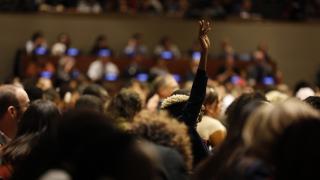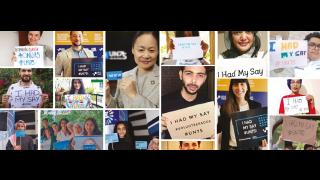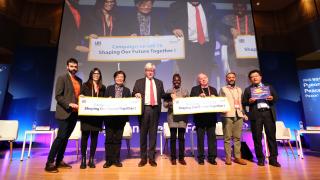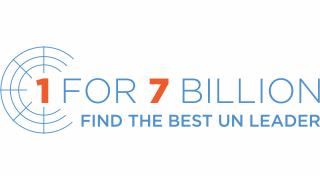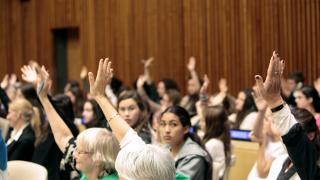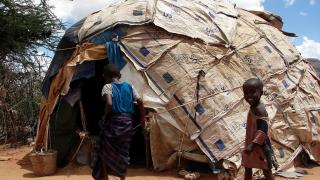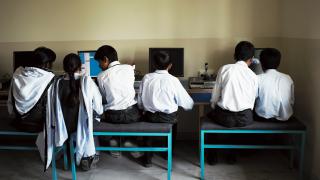
Aya Chebbi, founding Chair, African Youth Movement; Co-founder, Voice Of Women Initiative
The distance between the UN Headquarters in New York and my hometown in Tunisia has shrunk over the past two decades. Today, in the age of laptops and mobile data, the United Nations feels more accessible, but many in the global South are still unable to participate.
When the United Nations was designing the Millennium Development Goals (MDGs) in the late 1990s, the public had little say in the process. Fifteen years later, thanks largely to the internet and online consultations, over nine million individuals were able to engage in setting priorities for the Sustainable Development Goals (SDGs).
Before the SDGs, the UN all too often only heard from large, well-resourced organisations, which may not reflect the reality at a community level, while the voices of the citizens who are most in need are not heard. But this new agenda provides an opportunity to re-balance power relations between civil society in the global North and South.
The UN is not just responsible for presiding over the SDGs, it has to implement them internally as well. Goal 16 on peace, justice and inclusive institutions contains objectives for democratising UN decision-making processes, making them more representative of the global South:
- 16.6 Develop effective, accountable and transparent institutions at all levels
- 16.7 Ensure responsive, inclusive, participatory and representative decision-making at all levels
To achieve these targets, the UN needs to embrace the digital age with an emphasis on “leaving no one behind”. The first aspect of this is to provide simplified information via the UN website, such as accessible versions of key UN documents that can be downloaded on a phone. Better use of infographics to help the public better understand UN policy programmes would also help.
But online support is only part of the solution. There remains a major digital divide globally, with 60 per cent of the world offline, the vast majority in Central Africa, Southeast Asia and the Middle East. As a result, a considerable amount of indigenous and traditional knowledge from communities off the grid is not captured in intergovernmental processes.
The UN must provide better support to bring the voices of civil society directly from grassroots organisations.
To bridge this gap and connect rural communities to the World Wide Web, the SDGs aim to “provide universal and affordable internet access to the least developed countries by 2020”. In terms of infrastructure, the UN should encourage governments to scale up internet provision, improve internet literacy and prioritise mobile access for those who are in remote areas. We learned in 2011, during Tunisia’s historic political transition to democracy, that digital tools have become fundamental in mobilising the masses to take a stand on social, economic and environmental issues.
But it cannot stop there. To reach those most in need, with no imminent hope of entering the digital age, the UN must provide better support to bring the voices of civil society directly from grassroots organisations. On this front, the UN should ensure timely announcements of meetings and make more travel grants accessible to those who are ‘off-grid’ as well as working with host countries to ease the often-restrictive visa processes that attendees face. Only by enabling a platform for the hardest-to-reach voices can the UN ensure that it truly reflects the needs of the world’s seven billion people.
About the author
Aya Chebbi is the founding Chair of the African Youth Movement, a renowned blogger and an award-winning pan-African feminist activist. She is also the cofounder of the Voice of Women initiative (feminist collective).
Photo: Students work on educational programs in the computer room at Bagga Sheikhan school near Rawalpindi, supported by Developments in Literacy (DIL) , Punjab Province, Pakistan. Credit: Stars Foundation/CC

